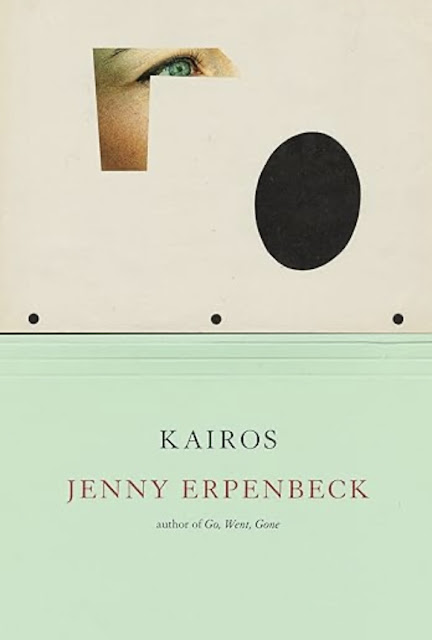I'm not entirely sure what to make of this deeply depressing book which won the International Booker Prize this year, perhaps because my knowledge of life behind the Iron Curtain has been limited to a few novels and movies, the most relevant of which is The Lives of Others, as well as childhood and adult visits to Berlin. Jenny Erpenbeck titles it (ironically?) after the Greek god of fortunate moments, although neither of the two main characters--engaged in a mystifying May/December romance--have many.
Katrina is a student with a relative in West Germany but no desire to defect; Hans, a canny political survivor never without a cigarette, has a prestige job in radio despite his Nazi past, as well as a wife and teenage son, neither of whom seem to matter much. Sparks fly when the two meet after riding the bus. The novel chronicles their years-long affair during the slow-but-sure collapse of communism with his perspective--mostly reflecting the good old days--dominating the first half, suggesting that both the political and the personal are giving way to the new. Katarina (The sacrificial victim is the chosen one) submits to him completely, even as the relationship turns shockingly abusive, but what can you expect from a man who grew up in not one but two quite different totalitarian states? By the time Katarina--after Hans forces her to read an unrelenting recitation of how her once sleeping with another man has irrevocably spoiled their relationship--realizes her history may be something more than his (How to endure the way that the present trickles down moment by moment and becomes the past?), the Berlin Wall has fallen.
Kairos is bookended by two deliveries of what Erpenbeck, also an opera director, calls "flat product" which, in fact, turn out to be concurrent. The first contains the ephemeral evidence of their love affair (When the check comes, he drinks the last of three korns he’s ordered, pays, and carefully pockets the bill: Our reunion following your week in Hungary — this is a museum piece.)--the second, Katarina's Stasi file. In the world of her youth--so corrupt that her mother didn't care she was sleeping with a married man--what she thought was love was just a more sentimental kind of surveillance.

No comments:
Post a Comment